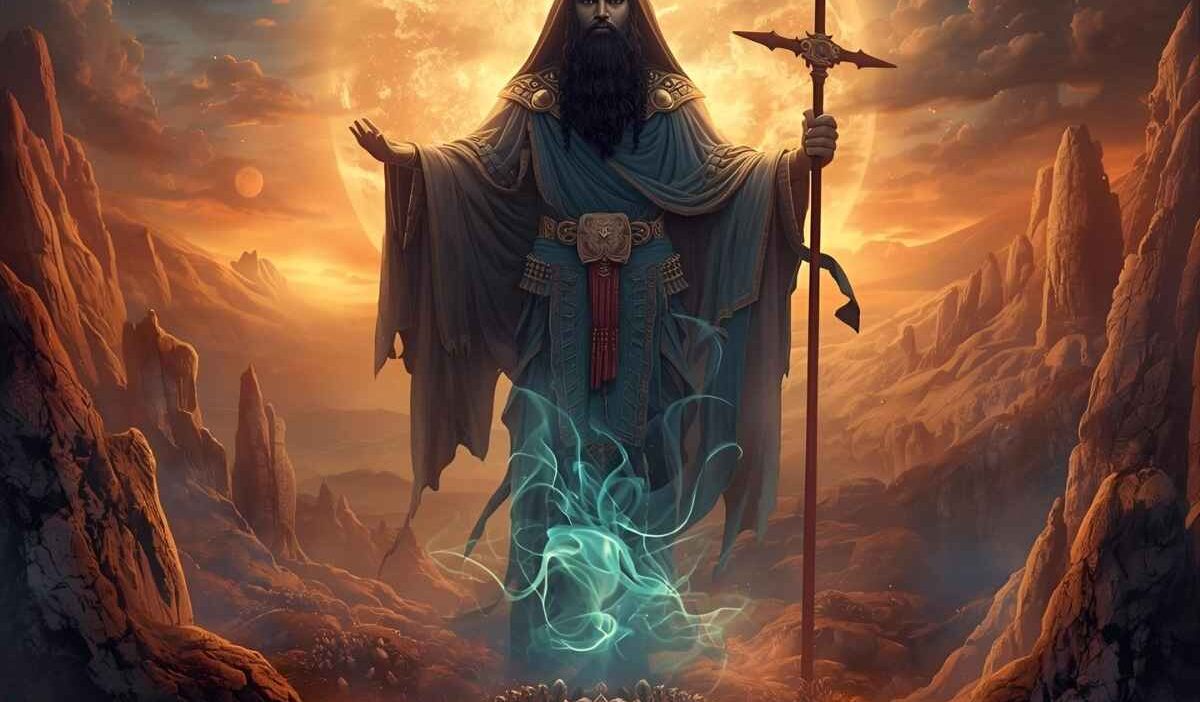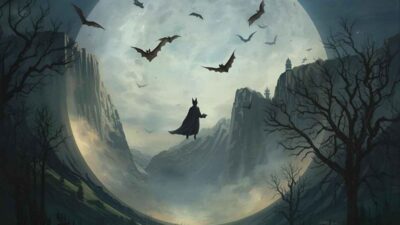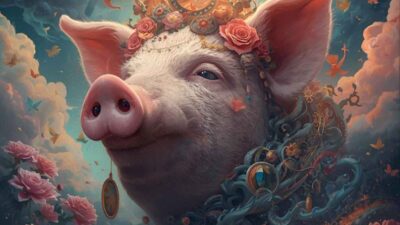A Gilgamesh dream meaning often points to prophecy, transformation, or meeting a powerful companion: in the epic, Gilgamesh’s dreams foreshadow his friendship with Enkidu and later challenges he must face. In modern interpretation, dreaming of Gilgamesh can symbolize inner heroism, existential questions, or confronting one’s mortality.
In this article, we’ll explore why dreams involving Gilgamesh are compelling, how scholars and psychologists interpret them, and what they might mean in your own life. You’ll discover general symbolism, specific dream variations (e.g. dreaming of meeting Gilgamesh, battling alongside him, or seeing him in divine form), cultural and historical roots, psychological insights, and tools to work with these dreams meaningfully.
Why Gilgamesh Dreams Fascinate Us
Gilgamesh is one of humanity’s oldest mythic heroes — king of Uruk, part god and part mortal, in search of fame, friendship, and ultimately immortality. His epic has inspired countless retellings, and dreams involving Gilgamesh carry that weight of myth, promising symbolic depth and existential resonance.
When someone dreams of Gilgamesh, it often feels more than just a dream about a historical or legendary figure: it conflates personal destiny, crisis, and transformation. Because Gilgamesh straddles the boundary between human and divine, his appearance in dreams suggests inner journeys that question power, mortality, or one’s path.
This article first outlines the general meaning and symbolic lenses for Gilgamesh dream meaning (psychological, spiritual, and literary). Then we’ll examine variations — meeting him, battling, allying, seeing him in mythic settings, etc. A realistic case will show how such a dream surfaced in someone’s life. Next, we’ll trace the cultural and historical symbolism of Gilgamesh dreams: ancient Mesopotamian oneiromancy, epic structure, and myth. Then we’ll give psychological guidance for integrating these dreams (journaling, growth, reflection). Finally, we’ll answer FAQs and conclude with key takeaways and next steps.
General Meaning, Symbolism, & Interpretations of Gilgamesh Dreams
When Gilgamesh appears in your dreams, the meaning often operates on multiple levels: symbolic, psychological, spiritual, and narrative.
Symbolic & Mythic Dimensions
- Prophecy & foreshadowing: In the Epic of Gilgamesh, his dreams serve as prophetic messages from gods and oracles. Gilgamesh dreams of a meteor, an axe, falling mountains, bulls, storms, and fire — all interpreted by his mother Ninsun or by Enkidu as signs of events to come. Wikipedia+3SparkNotes+3Smithsonian Magazine+3
- Meeting one’s counterpart: His early dreams (axe and meteor) foretell the arrival of Enkidu — a friend, rival, and mirror to Gilgamesh. Ninsun interprets that these dreams mean someone will come into his life to become integral to his journey. Indian Premier League+3SparkNotes+3Smithsonian Magazine+3
- Divine intervention & guidance: Many Gilgamesh dreams portray gods or cosmic forces (as storms, burning skies, quaking earth). They imply that deeper, unseen forces are at play in the dreamer’s life. Martini Fisher+3SparkNotes+3Indian Premier League+3
- Mortality and cosmic magnitude: Later in the epic, dreams bring Gilgamesh face to face with his own limits, mortality, and the fate that even heroes must accept. Enkidu’s dreams, too, foretell death and cosmic judgment. eNotes+3SparkNotes+3IvyPanda+3
Psychological & Spiritual Interpretations
From a psychological or spiritual perspective, Gilgamesh in dreams can indicate:
- Hero archetype emergence — You may be being called to step into a more heroic version of yourself: take leadership, face fears, claim authentic power.
- Shadow confrontation — Gilgamesh’s brutishness and arrogance also carry shadows. His presence may force you to wrestle with pride, ego, or destructive impulses.
- Search for meaning & immortality — Just as Gilgamesh quests for eternal life, your dream might reflect deeper longings: legacy, impact, transcendence.
- Friendship, balance, and mirror — Meeting a figure like Enkidu suggests you need a counterpart or grounding influence: someone to reflect and challenge you.
- Existential crisis or transformation — Such dreams often surface during transitions or crisis: when identity, life purpose, or fear of death loom large.
A recent phenomenological study used the Phenomenological Dream Self Model (PDSM) to analyze Gilgamesh’s dream experiences, arguing that they reveal shifts in his sense of omnipotence, vulnerability, and transformation through narrative self-development. heiJOURNALS
Scholars also note that in the epic, dreams are ritualistic and socially mediated: Gilgamesh and Enkidu regularly ask gods for dreams and interpret them together, suggesting that the dream meaning is not a solo act but dialogic — involving others as interpreters. Indian Premier League+2Aithor+2
In your own life, a Gilgamesh dream meaning may point to a crossroads: whether you are ready to face your limits, call on allies, or reshape your life story in elevated, courageous terms.
Common Variations of Gilgamesh Dreams (with Interpretations)
Below are several common ways Gilgamesh may manifest in dreams and what each variation might imply — both positive and negative angles.
Meeting or Encountering Gilgamesh
Interpretation
- Positive: You are being invited to connect with your heroic core, to embody a higher purpose or leadership.
- Negative: Meeting him might signal intimidation, overwhelm, or fear of a “larger-than-life” part of yourself.
Details
If you dream of greeting Gilgamesh, speaking with him, or walking with him, that suggests a budding internal alliance: your dreaming self and heroic self collaborating. But if you feel distant, fearful, overshadowed — the dream could be urging you to negotiate your relationship with power and aspiration.
Battling or Challenging Gilgamesh
Interpretation
- Positive: You are confronting inner resistance or ego that needs to be transformed or integrated.
- Negative: The fight may indicate self-conflict, pride, destructive tendencies, or refusing to submit to limits.
Details
If your dream shows you in combat with Gilgamesh — struggling to defeat him or resisting his dominance — this may symbolize internal conflicts. Perhaps ambition, authority, or shadow impulses are clashing, and your psyche demands reconciliation. If you “defeat” him, it might suggest overcoming ego, but there’s risk of hubris. If you lose or draw, it may suggest the need for humility or collaboration instead of dominance.
Collaborating or Questing with Gilgamesh
Interpretation
- Positive: You are in alliance with your heroic potentials — moving forward in mission, growth, or self-realization.
- Negative: You might rely too heavily on idealized power or external validation, losing touch with grounded needs.
Details
Dreams where you and Gilgamesh journey, work together, face obstacles, or conquer challenges often reflect your inner ambition and willingness to act. This suggests that your psyche is mobilizing resources: courage, resilience, strategy. But be cautious: depending too much on heroic narrative may blind you to nuance, rest, or relational balance.
Seeing Gilgamesh in Divine or Mythic Form
Interpretation
- Positive: Elevation, spiritual calling, connection to archetypal forces beyond the everyday.
- Negative: Displacement — you may be neglecting your humanness, burdened by grandiosity, or losing practicality.
Details
In some dreams, Gilgamesh may appear as a godlike or luminous figure—wearing radiant garments, surrounded by cosmic energy, or presiding over courts of gods. This suggests that your soul is reaching for the transcendent, seeking validation of your higher Self. But a risk is alienation from ordinary life: you may desire the transcendental so much that daily needs go unresolved.
Birth, Death, or Transformation with Gilgamesh
Interpretation
- Positive: Symbolic rebirth — your identity or life path is undergoing transformation.
- Negative: Fear, loss, or resistance to change; risk of clinging to old identities.
Details
If you dream of Gilgamesh dying, resurrecting, or entering underworld realms with him, that suggests powerful metamorphosis. Such dreams echo the hero’s journey — death of the old self, initiation, emergence of new identity. But they can also bring fear or grief; the shadow side is resisting transformation or mourning what must be lost.
Special Contexts — Wedding or Ritual Gilgamesh Dreams
Interpretation
- Wedding: Union of your conscious and heroic selves; integration of power and humility.
- Ritual / Sacrifice: Sign of inner offering, surrendering ego, or devotion to higher purpose.
Details
Dreams where you see Gilgamesh in wedding attire, or standing before an altar, might symbolize inner marriage, the coming together of disparate parts of your psyche (e.g. warrior aspect + sage aspect). Ritual scenes (sacrifices, offerings in his name) can suggest that you are being asked to surrender something in service of your deeper path — letting go of comfort, ego, or attachments.
Real-Life Case Example
Imagine a mid-career professional named Sara. She had been feeling restless and questioning her path in life. One night she dreamt that she stood in a grand, ancient city and saw Gilgamesh sitting on a throne in the distance. As she approached him, he rose and spoke: “Rise with me, walk by my side.” He offered her a sword, and together they walked into a forest toward a distant mountain.
Upon waking, Sara felt both exhilarated and intimidated. She journaled: “He invited me into partnership, but also asked me to leave familiar ground.” Over weeks of reflection, she realized that the dream was urging her to start a new career direction — one that aligned more with her deeper values and impact. The “forest” and “mountain” in the dream mirrored obstacles ahead, but Gilgamesh’s offer suggested she had the strength to proceed. Sara eventually launched a new social-impact initiative, feeling that she had metaphorically answered his call.
In her case, the Gilgamesh dream meaning functioned as a catalyst — not rigid prophecy, but a symbolic nudge toward her latent ambition and purpose.
Cultural & Historical Symbolism of Gilgamesh Dreams
Ancient Mesopotamian Oneiromancy & Epic Dream Culture
In ancient Sumer, Akkad, and Babylon, dreams were a central medium of divine communication. Kings and priests recorded dreams, consulted interpreters, and held that some dreams came from gods, others from demons or omens. Wikipedia+4Wikipedia+4Martini Fisher+4
The Epic of Gilgamesh includes multiple dream sequences. Early on, Gilgamesh has two dreams: one of a meteor and one of an axe. His mother, Ninsun, interprets these as portents of a powerful companion — later revealed as Enkidu. SparkNotes+2Smithsonian Magazine+2
Later, as Gilgamesh journeys toward the Cedar Forest and confronts Humbaba, he receives prophetic dreams: of bulls, thunder, ash, and falling mountains. Enkidu habitually interprets them optimistically, assuring Gilgamesh of divine backing. StudyCorgi+3Wikipedia+3SparkNotes+3
Enkidu himself has dreams foretelling his own death and judgment in the underworld — reinforcing themes of fate, mortality, and cosmic order. SparkNotes+2GradeSaver+2
The use of dreams in Gilgamesh is not incidental but integral: they guide decisions, foreshadow conflict, enforce the gods’ will, and dramatize internal psychological shifts.
Myth, Etymology & Cultural Resonance
- Gilgamesh as archetype: The name Gilgamesh (often interpreted as “the old man is youthful” or “his progenitor is a god”) situates him between mortality and divinity. His dreams reflect that hybrid identity.
- Companion motif: The very notion of dreaming of Gilgamesh invariably recalls Enkidu’s role — the balancing counterpart who brings humility, empathy, and grounding. The original epic uses those dreams to forecast that connection. Smithsonian Magazine+2IvyPanda+2
- Mythic psychology: In Mesopotamian culture, high-status individuals believed dreams were messages from gods, and they kept interpreters or “sleepers” to decode them. The Gilgamesh narrative embeds that worldview: characters petition gods, request favorable dreams, interpret them communally. Indian Premier League+2Wikipedia+2
- Cultural resonance: Because Gilgamesh is one of humanity’s foundational mythic figures, his dream symbolism resonates across time. To dream of him is to tap into foundational human themes: power, friendship, legacy, death, and transcendence.
Psychological Insights & Growth Advice
Dreams of Gilgamesh are powerful signposts—they beckon but do not dictate. Here’s how to approach them thoughtfully and integrate insights for personal growth.
Keep a Dream Journal
Immediately upon waking, write down every detail: setting, feelings, dialogue, symbols (sword, forest, throne, etc.). Over time, patterns emerge: recurring motifs, emotional tone, shifts across weeks. The dream’s symbol of Gilgamesh may evolve — notice how he appears differently over time.
Dialogue & Active Imagination
In waking meditation, imagine sitting before Gilgamesh. Ask questions: “What do you ask of me?” “Why are you here?” “What virtue or fear do you represent?” Note spontaneous impressions or emotional shifts. This inner dialogue can help you decode what aspect of your life the dream is addressing.
Mindfulness & Embodied Reflection
Notice where in your body you feel tension or activation during recall (in chest, throat, limbs). Sometimes the dream message is somatic — activating latent strength or fear. Use breathwork, movement, or somatic exercises to release stuck energy.
Frame Actionable Questions
Use the dream as a generative prompt:
- What heroic step do I need to take now?
- What ego or shadow part must I confront?
- Who could be my “Enkidu” — a supportive ally or grounding presence?
- What old identity do I need to let die so a richer self may emerge?
Integration through Creative Practice
Express the dream through art, metaphor, writing, or ritual. Sketch the scenes; write a letter to Gilgamesh; perform a micro-ritual of commitment at dawn. These help internalize meaning rather than relegating the dream to “just a dream.”
Patience & Incremental Change
Often, Gilgamesh dreams point to deep transitions. Don’t rush a full transformation; instead, begin with small aligned choices (saying “yes” to a project, boundary-setting, exploring new skills). The dream’s symbolic call can unfold over months or years.
FAQs on Gilgamesh Dream Meaning
Q1: What does it mean if I dream of Gilgamesh meeting me?
If Gilgamesh meets you, it suggests your psyche is inviting alliance with your heroic potential. It could signal that you are ready to step into greater purpose or integrate dormant strength. However, if you feel fear or distance, it could also mean resistance or fear of being overwhelmed by ambition.
Q2: Is dreaming of Gilgamesh always positive?
No. While many Gilgamesh dreams are empowering, they sometimes bring shadow or challenge — meaning you may be confronting arrogance, ego conflicts, existential anxieties, or demands you’re not ready to face. The key is discernment: what feels generative vs. what feels compulsive.
Q3: What if I dream Gilgamesh died or was destroyed?
Death or demise in a Gilgamesh context usually signals transformation, ending of an identity, or the need to let go of outdated power structures in your psyche. It may also express grief or fear of mortality. The positive side is that out of “death” can come rebirth.
Q4: How can I tell whether my dream is literally “about Gilgamesh” or just a strong archetype?
Often it’s both: whether the figure looks like the historical hero or is more symbolic, your inner mind uses Gilgamesh as archetype. The telling cues are narrative weight, drama, interior shift, and emotional impact. If the dream insists on mythic structure, you’re likely in that archetypal territory.
Q5: Can any dreamer have Gilgamesh dreams, or is it only for mythic or spiritual people?
Any dreamer can have Gilgamesh dreams — they are not a sign of elitism. They tend to occur when your psyche is in transition, craving greater meaning, or when existential questions (death, legacy, power) are active in your life.
Q6: How long does it take to interpret and integrate a Gilgamesh dream?
Integration is not immediate. You may glean core meaning within days or weeks, but full embodiment (lifestyle shifts, identity change) may unfold over months or more. Be patient, revisit the dream, and allow it to unfold its layers over time.
Conclusion
Dreaming of Gilgamesh is rarely shallow — it summons the heroic, the mythic, the existential. As you reflect on your dream, remember these key takeaways:
If you’ve had a Gilgamesh dream, I encourage you to journal it, revisit it over time, and see where its messages nudge your life. Consider sharing it with a trusted friend or therapist who works with dreams. Embrace the journey — the hero’s path is rarely easy, but it’s full of depth, challenge, and possibility.
May your dreams guide you wisely.
Call to Action: Try writing your own Gilgamesh-inspired dream journal entry tonight, then revisit it after a week — see how the symbols evolve.

Ethan Caldwell is a spiritual scholar with extensive expertise in ancient symbolism, mythology, and esoteric dream meanings. His research blends cultural traditions with modern interpretations to offer deep and enlightening perspectives on dream symbols. Ethan’s writing style is both educational and inspiring, making complex spiritual topics easy to understand. At DreamingSign.com, he is dedicated to guiding readers through the mystical dimensions of the subconscious mind.




